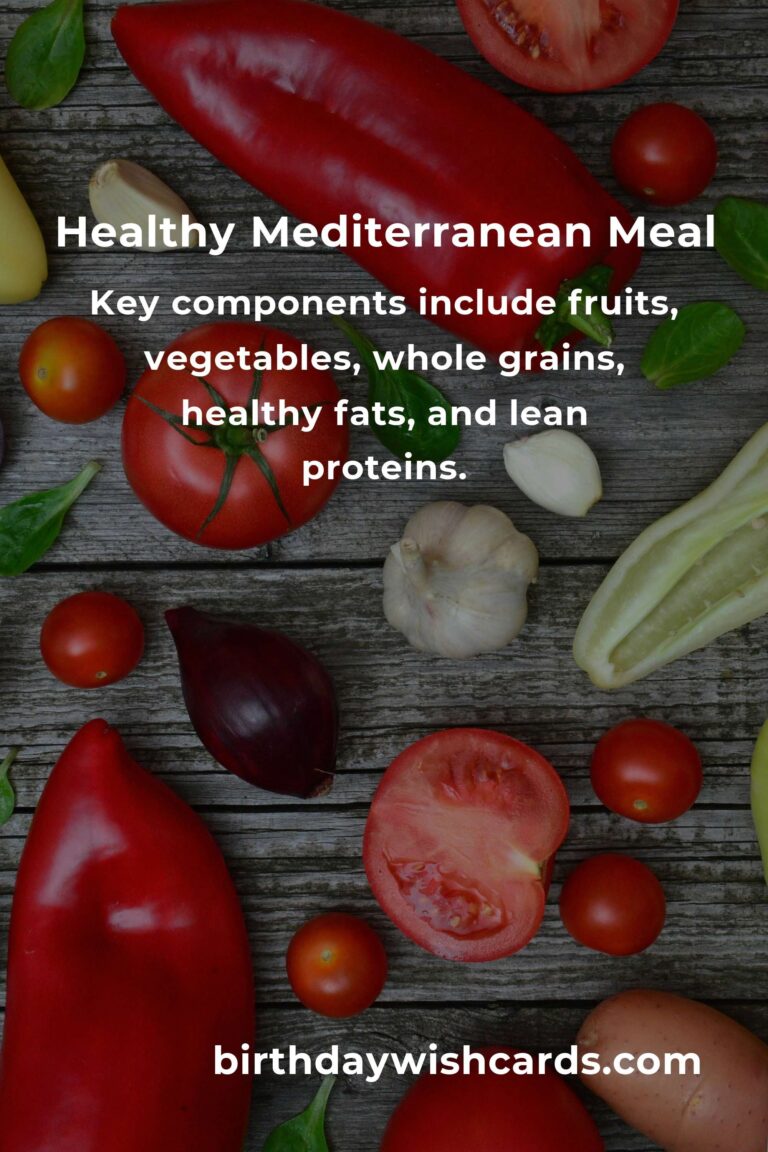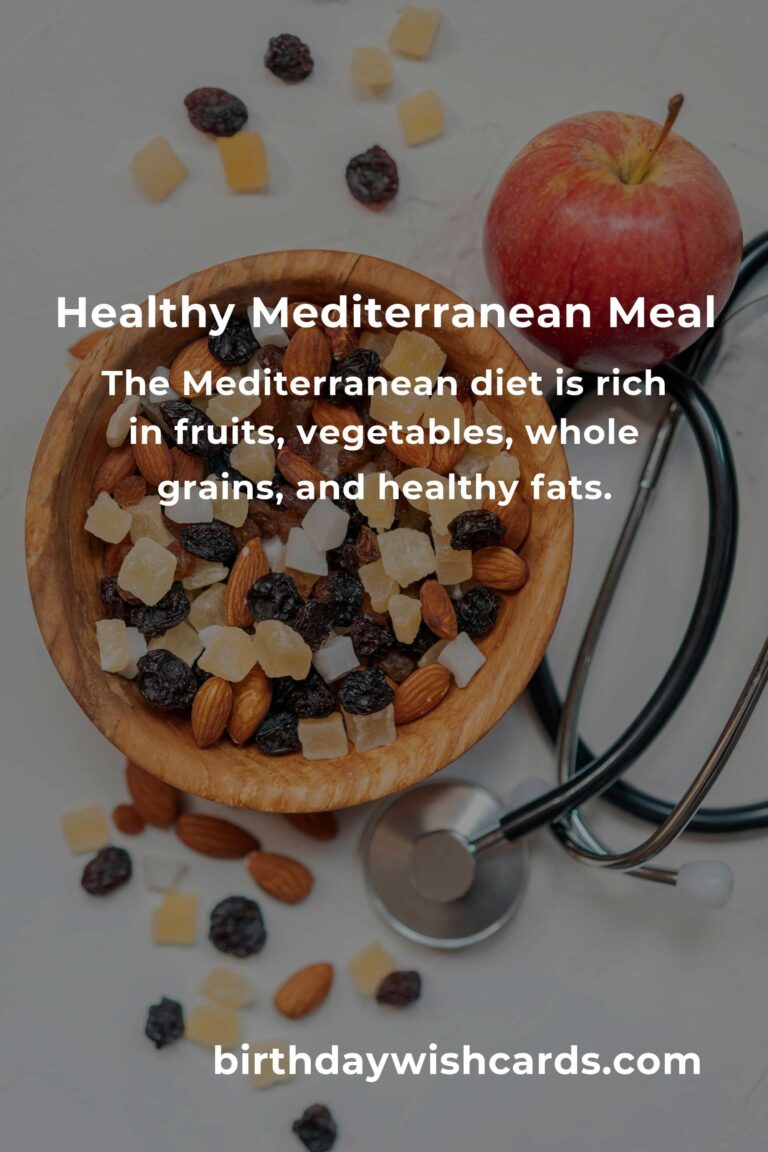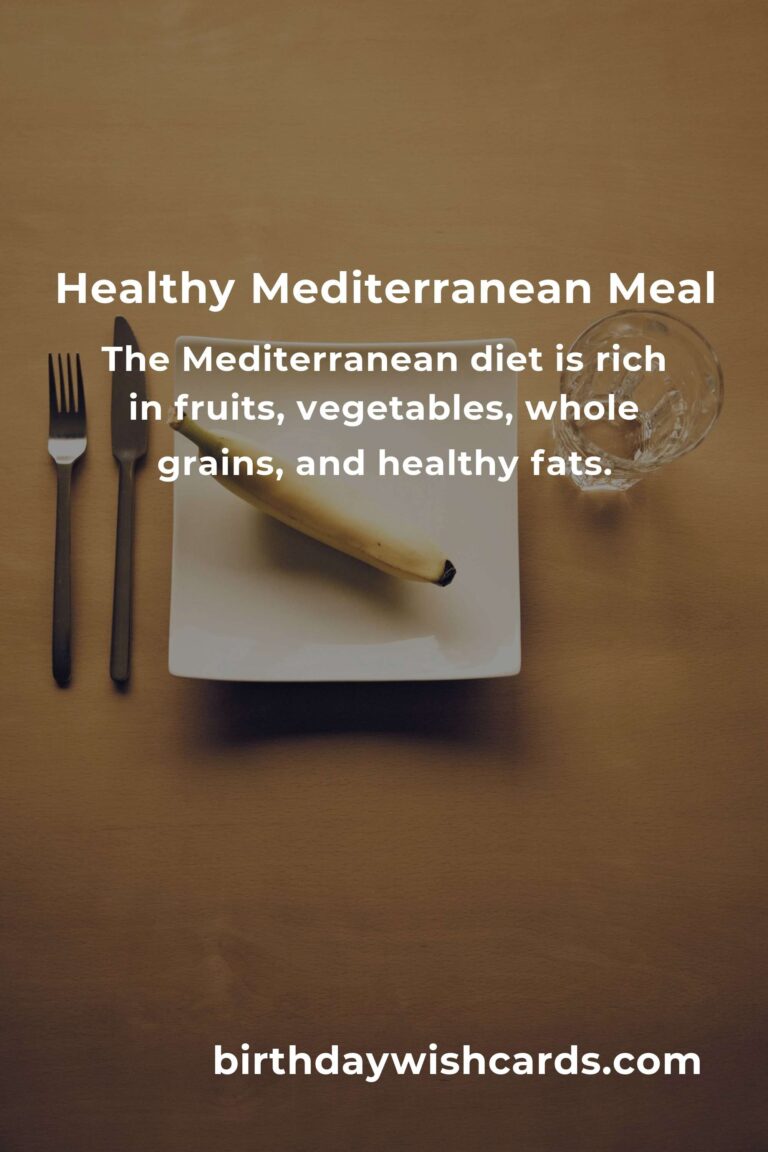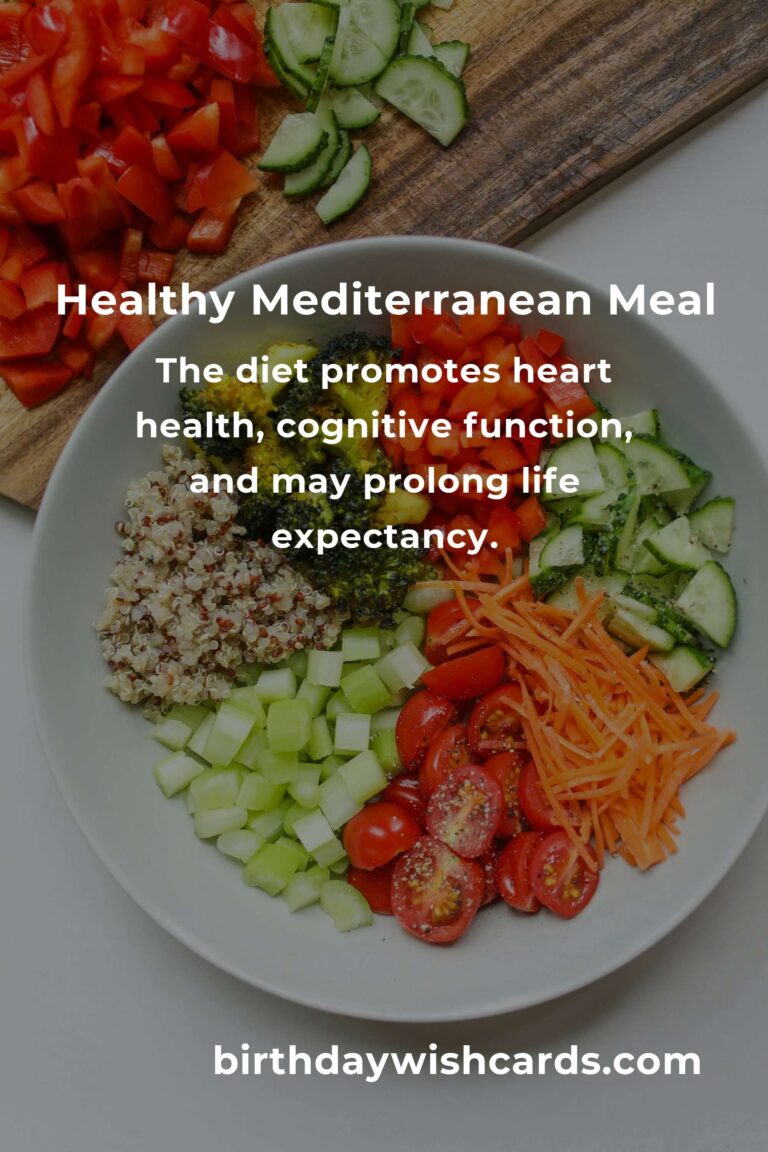
The Mediterranean diet has long been heralded as one of the healthiest dietary patterns in the world. Originating from the countries bordering the Mediterranean Sea, this diet is rich in fruits, vegetables, whole grains, and healthy fats, offering numerous health benefits, particularly for retirees looking to maintain their health and vitality as they age.
Introduction to the Mediterranean Diet
The Mediterranean diet emphasizes whole, minimally processed foods, primarily plant-based, with healthy fats like olive oil, moderate fish and poultry consumption, and limited red meat and sweets. This dietary pattern promotes heart health, aids in weight management, and reduces the risk of chronic diseases.
Benefits for Retirees
The Mediterranean diet is particularly beneficial for retirees. It supports cardiovascular health, which is crucial for aging individuals, helps maintain cognitive function, and may even prolong life expectancy. The diet’s emphasis on nutrient-dense foods ensures that retirees get the essential vitamins and minerals needed to support their overall health.
Key Components of the Mediterranean Diet
1. Fruits and Vegetables: Aim for at least five servings of fruits and vegetables daily. These are rich in antioxidants and essential nutrients.
2. Whole Grains: Incorporate whole grains like brown rice, quinoa, and whole-grain bread to provide fiber and energy.
3. Healthy Fats: Use olive oil as the primary fat source. Include nuts and seeds for added healthy fats.
4. Protein Sources: Focus on fish, especially fatty fish like salmon and sardines, as well as poultry and legumes.
5. Dairy: Consume moderate amounts of dairy, choosing yogurt or cheese.
6. Herbs and Spices: Flavor foods with herbs and spices instead of salt to enhance taste and health benefits.
Meal Planning for Retirees
Planning meals around the Mediterranean diet can be simple and enjoyable. Start with a base of vegetables, add a protein source, such as fish or legumes, and use whole grains or starchy vegetables for carbohydrates. Finish with a drizzle of olive oil and a sprinkle of fresh herbs.
Sample Mediterranean Meal Plan
Breakfast: Greek yogurt with fresh berries and a sprinkle of granola.
Lunch: A large salad with mixed greens, cherry tomatoes, cucumber, olives, feta cheese, and grilled chicken, drizzled with olive oil and lemon juice.
Dinner: Baked salmon with a side of quinoa and steamed broccoli, seasoned with dill and lemon.
Snacks: A handful of almonds or a piece of fruit.
Conclusion
Adopting the Mediterranean diet can lead to numerous health benefits, particularly for retirees seeking to maintain their health and enjoy their golden years. By focusing on whole, nutritious foods and incorporating the key components of the Mediterranean lifestyle, retirees can improve their quality of life and longevity.
The Mediterranean diet is rich in fruits, vegetables, whole grains, and healthy fats.
It offers numerous health benefits, particularly for retirees.
The diet promotes heart health, cognitive function, and may prolong life expectancy.
Key components include fruits, vegetables, whole grains, healthy fats, and lean proteins.
Adopting this diet can improve quality of life and longevity for retirees.
#MediterraneanDiet #HealthyAging #Retirees #Nutrition #HealthyLifestyle












